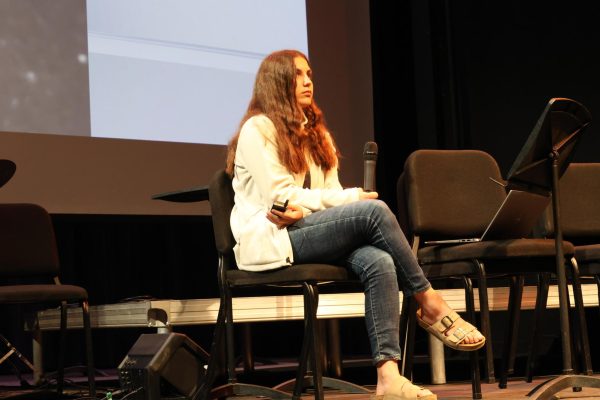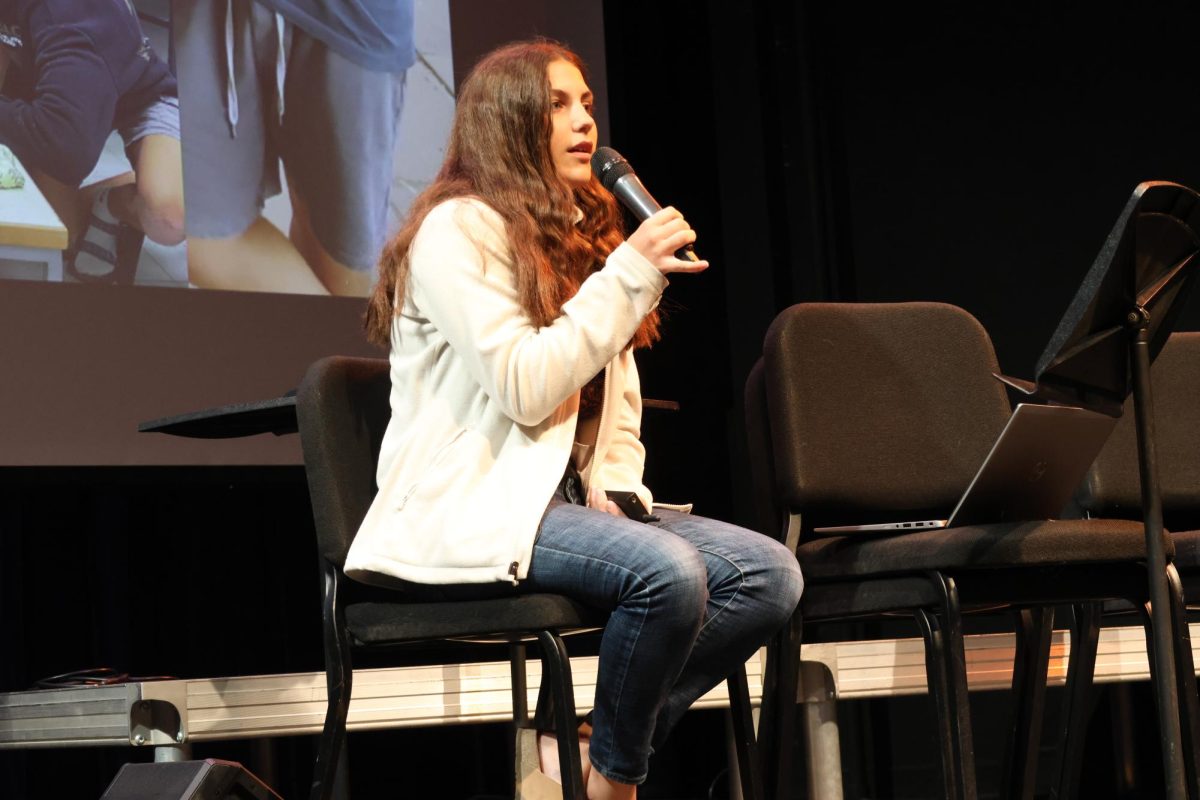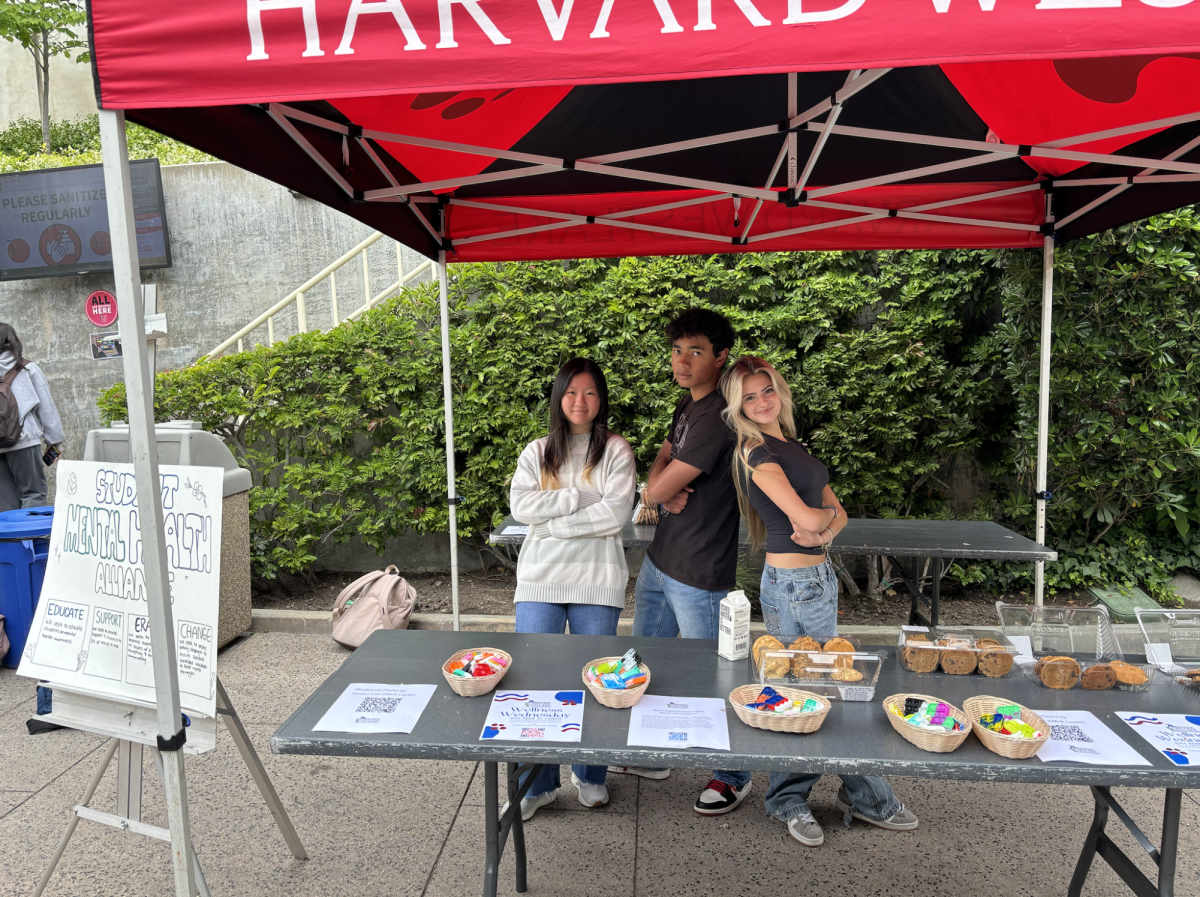It was a warm evening in kibbutz Be’eri, when 14-year-old Israeli Ella Shani invited 12 of her friends to her house for a Friday night dinner Oct. 6. Gathering in observance of Shabbat, a Jewish day of rest and prayer, the friends ate and laughed together throughout the evening. The next morning, however, Shani woke to the sound of air-raid sirens, and rushed with her mother and little brother to the safe room in their house. Looking at notifications from Red Alert, Israel’s security notification system, she believed it was just another routine firing of rockets from the Gaza Strip. However, after a series of texts that circulated through members of the kibbutz, along with the faint sound of gunshots outside, it was officially confirmed: Hamas militants had invaded the kibbutz, and were shooting people on the streets and going door to door, killing residents.
The invasion of Kibbutz Be’eri — one of the small communities Shani is from — along with several others along the Gazan border Oct. 7, were all part of Islamic fundamentalist group Hamas’ terrorist attacks, which left over 1,200 Israelis killed and 240 taken hostage, 136 of which currently being held in Gaza. The massacre in Be’eri alone killed over 100 of its 1,200 residents, according to a briefing by the Israeli Foreign Ministry. In response, Israel declared war on Hamas days later, now resulting in the Palestinian death toll rising to over 17,000, according to health authorities in Gaza. After a week-long ceasefire negotiated between Israel and Hamas was broken on Dec. 1, the Israeli offensive has resumed, with a series of bombardments across Gaza and urban fighting on the ground in Khan Younis, a southern city in the enclave where Hamas is believed to be centralized.
Shani spoke to students and faculty in Rugby Auditorium on Nov. 29 in an event organized by Jewish Club. She is a relative of Middle School Mathematics Teacher Mayan Benami and previously spoke at the Middle School in an all-school assembly Nov. 27.
As she recounted the early stages of the attack in her presentation, Shani said she remembered the moment when she heard pounding on her door.
“I heard someone knocking on the front door aggressively, trying to break in,” Shani said. “But we couldn’t open it [anyways], because there was no walking around. We had to stay in the safe room. And then we got a message [from kibbutz security], saying there is a suspicion of terrorists in the kibbutz.”
Throughout the morning, Shani read texts from her family members. “I’m hearing Allahu Akbar everywhere,” a message read. “Someone send the IDF to my house, quickly,” another read. “The terrorists broke in, they’re shooting in the house.” She would learn later that afternoon that both her grandparents were shot by militants and were alive but in critical condition. Despite calling the hospital, Shani said that aid could not arrive due to the presence of Hamas militants.
“We called [medics], and said that somebody had to go to [my grandparents’] house and take care of their wounds,” Shani said. “The medics said, ‘We have nothing to do with it because the area isn’t clear.’ And [in that moment] I just remember the helplessness we felt, knowing that we couldn’t do anything.”
After hiding in the safe room for hours, Shani, her mother, her 8-year-old brother Eyal, and a friend of his were relocated by an IDF unit to another house, where they gathered with two other families. Inside the house, Shani said she recalled seeing extensive amounts of blood and gore.
“We walked through the living room,” Shani said. “There was blood and body parts all over the floor. I didn’t know what I was looking at, it just looked terrible. I’m 14, and I don’t think any 14-year-old needs to see something like [what I saw]. But I’m an older sister, and my 8-year-old brother was there. My first instinct was to cover my little brother’s eyes and keep walking, and that’s what I did.”
Once inside the house, Hamas’ militants attempted to shoot inside. Following an IDF command, Shani and her family were told to run over a mile down a road leading out of the kibbutz, accompanied by another special unit. As she ran through the street, Shani said she remembered seeing the destruction around her.
“We saw all the houses on fire,” Shani said. “There were exploded cars on the side of the road. There were trails and pools of blood everywhere. It’s a huge kibbutz, and it just shocked me to look in any direction and just see more blood. It looked like someone dropped a huge bomb on everything.”
They continued until they reached an IDF bus that brought survivors to Tel Aviv. Shani said she distinctly recalled seeing another 8-year-old boy, a friend of her brother Eyal, on the bus with them.
“[The boy] was running to us, wearing just his shirt and boxers,” Shani said. “[He was] without his glasses, without shoes, without anything, with blood all over his face. He said to my brother, with a look of horror, “Eyal, you won’t believe it. I saw how they killed my dad and little sister.”
The boy’s little sister, according to Shani, was only 10 months old.
“[Hamas militants] shot her out of the mother’s arms,” she recalled. “The mother [survived and] was taken to the hospital.”
Once she reached Tel Aviv, Shani began to hear more reports of what had happened to her family members. Her cousin Amit was captured by Hamas and taken back to Gaza, the only hostage taken from his family of four. Before Nov. 29, he was held by Hamas for over 50 days, and only a couple hours after Shani spoke to the school, he was released by his captors along with nine other hostages and sent to an Israeli hospital. Shani said her cousin has yet to find out about the devastation of his kibbutz and loss of his friends since being taken hostage.
“I don’t want to know what Amit has gone through,” Shani said. “I’m also terrified of what he’s going to find out. We’re not going to tell him yet, of course, but three of his closest friends were murdered. His house is no longer there. He’s coming back to nothing.”
Five days after the attacks, Shani learned from her mother that her father, Itzhik Kozin, had been murdered by Hamas militants.
“When the [Israeli soldiers] found him he was burned,” Shani said. “I hope that he got killed by being shot and that he didn’t have to suffer more. I don’t want to imagine what happened to him.”
Despite her complex relationship with her father, Shani said that his death impacted her deeply.
“I never called him dad,” Shani said. “A parent is so proud of being a parent, and he deserved more than hearing me call him by his name. Only five hours before the attack, I was talking to a friend, ‘I want to start calling him Dad. I feel like we made progress.’ I never imagined in any universe that 10 hours later he would be taken away.”
At the end of her presentation, Shani said students have an obligation to acknowledge the hostages still being held in Gaza and advocate for their release.
“I’m here to give testimony,” Shani said to the crowd. “But more than that, I’m here because I want you to help. People are starting to forget about the hostages, and that is the worst thing that could happen to us after all that happened. The fact that they’re Jews and Israelis doesn’t change anything. These are human people, innocent people who were kidnapped by terrorists. Please keep reading [about it], or say a few words about [the hostages]. Do whatever you can because I know you can.”
Shani received a standing ovation from the audience afterwards. Jackie Ghalili ’24, who attended the event, said that it was disheartening to see Shani trying to defend herself by providing evidence of the horrors experienced by the kibbutz.
“Hearing [Shani] recount her experiences was heartbreaking,” Ghalili said. “It’s difficult to hear that any human had to endure what [Shani] endured, but what was almost more devastating was that she felt she had to defend herself and her story. She was giving testimony with pictures and videos almost as though she felt we wouldn’t believe her, and the sad part is that there are a lot of people out there who wouldn’t.”

Ghalili said that she admired Shani’s courage to tell her story to others, given her extreme circumstances.
“The whole time we were watching her, I was thinking about how much strength it must have taken for her to stand in front of a bunch of kids older than her, in another country, speaking a language that isn’t her first language and recounting an event so traumatic and so recent,” Ghalili said.
Ghalili’s father, a Jew, was expelled from Iran and moved to Israel at the age of 13 following the Iranian Revolution. Before moving to Los Angeles (LA), he lived in a kibbutz-like community called Hadasim. Ghalili said the attacks have given her new perspectives on her identity as a Jew and her family’s history.
“If my dad didn’t have Israel to flee to, it’s hard to say what would’ve happened to him,” Ghalili said. “We understand firsthand the need for the Jewish state of Israel because, without it, my family might not exist today. My religion and community are very important to me and have only grown more significant to me since [the attacks].”
Shani currently lives in LA with the Benami family and is in their custody because her mother has remained in Israel. She has since shared her story with the Mayor of L.A. Karen Bass, Mayor of Beverly Hills Julian Gold and prominent entertainment figures such as music agent Scooter Braun and former actress Sharon Stone. She has spoken about her experiences with the help of former actress and Israeli activist Noa Zahavi, who is based in LA. She currently helps run Bring Them Home, a newly founded organization dedicated to the release of hostages.
Zahavi, who has worked with Shani since Nov. 11, said that she carries a high level of poise when speaking about her experiences.
“We’re having many events, meetings and interviews, just whatever we can do to help her share this story [with others],” Zahavi said. “She’s specifically a very good educator. She’s very mature and articulate. And she’s only 14.”
Benami said that despite knowing little about Shani before the Oct. 7 attacks, they have since developed a closer relationship.
“We are acting as her guardians while she’s here,” Benami said. “[Shani] is only six weeks out of such a traumatizing event, and she needs emotional support. I’ve gotten very close to her, and my kids have gotten very close to her.”
Benami is from Kibbutz Nir Am, only nine miles away from Kibbutz Be’eri and less than two miles away from the Gazan border. In addition to his connections with kibbutzim throughout Israel, Benami’s grandmother was a Holocaust survivor. He said that the attacks from Oct. 7 were evocative of the trauma once experienced by Jews in the past.
“[The attacks] opened up a wound in terms of our Holocaust education,” Benami said. “The stories that were coming out were very reminiscent of the Holocaust. Every day that went by, we heard stories more and more horrific, stuff of your worst nightmares, things that you would have never believed.”
In an interview after her presentation, Shani said it will be difficult for the kibbutz members to heal from the attacks and rebuild their community.
“No one’s gonna come back for a year or two,” Shani said. “We can’t go back yet, but they want to build everything again. Mentally, it will be hard for people to come back. I want to come back to [Be’eri] because I grew up there, but still, more people are now scared of living so close to the border. And right now we don’t know what’s going to be done with Hamas and everything. I heard some people saying that it’s going to be hard for them to walk in the same roads where they used to see bodies and not see them anymore.”
Shani said she is raising awareness about the attacks in honor of her friends that were killed and the hostages that were taken.
“People who went through these [horrors] deserve to be remembered,” Shani said. “Some of the people killed were my friends. My other friends [that are alive] are in a bad mental state, and they can barely come out of their beds. I’m doing it for all of them and the people killed who cannot be here today.”


































Colorado Rob • Dec 29, 2023 at 8:45 am
Important story. Thank you for publishing it.